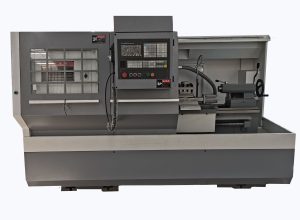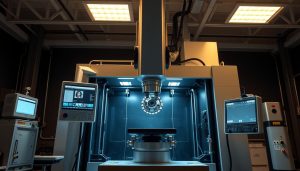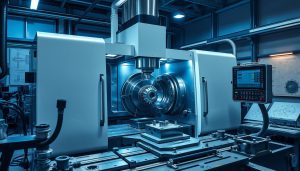In the dynamic landscape of medical device manufacturing, the selection of biocompatible materials is of paramount importance. These materials play a vital role in ensuring patient safety, device performance, and regulatory compliance. This article will explore the top 6 medical friendly materials that are widely used in the industry, highlighting their unique properties, applications, and benefits.
Navigating the complex world of medical device manufacturing requires a deep understanding of the materials that can withstand the rigors of the healthcare environment. From implants to surgical tools, the materials used must be not only durable but also compatible with the human body, minimizing the risk of adverse reactions or complications.
In this comprehensive guide, we will delve into the intricate details of stainless steel, titanium, silicone, PEEK, cobalt chrome, and magnesium – the top 6 medical friendly materials that are revolutionizing the industry. By exploring their unique characteristics and applications, we aim to provide you with the knowledge to make informed decisions when selecting the best materials for your medical device manufacturing needs.
Key Takeaways
- Biocompatible materials are essential for ensuring patient safety in medical device manufacturing.
- The top 6 medical friendly materials include stainless steel, titanium, silicone, PEEK, cobalt chrome, and magnesium.
- Each material offers unique properties and benefits that cater to different medical device applications.
- Understanding the characteristics and applications of these materials is crucial for selecting the right solution for your medical device manufacturing needs.
- Compliance with strict regulatory standards is a key factor in the selection of medical friendly materials.
Stainless Steel in Medical Devices
Stainless steel is a versatile and widely used material in the medical industry, valued for its durability and corrosion-resistant properties. This robust metal alloy finds extensive application in the manufacturing of surgical instruments and implants, making it an integral component of modern healthcare.
Types of Stainless Steel Used in Medicine
The medical field commonly utilizes two primary types of stainless steel: 316L and 304. These alloys are chosen for their exceptional corrosion-resistant characteristics, ensuring the longevity and safety of medical devices.
- 316L stainless steel is a low-carbon variant known for its superior resistance to corrosion and pitting, making it a preferred choice for implants and other long-term use applications.
- 304 stainless steel is a more general-purpose alloy that offers excellent strength and resistance to corrosion, commonly used in the production of surgical instruments and various medical equipment.
Benefits of Stainless Steel in Medical Applications
The use of stainless steel in medical devices provides numerous advantages, contributing to the reliability and effectiveness of healthcare technologies:
- Durability: Stainless steel’s inherent strength and resistance to wear and tear ensure the longevity of medical devices, reducing the need for frequent replacements.
- Corrosion Resistance: The corrosion-resistant properties of stainless steel protect medical devices from degradation, maintaining their integrity and safety in demanding healthcare environments.
- Ease of Sterilization: Stainless steel can be easily cleaned and sterilized, making it an ideal material for surgical instruments and other medical equipment that require strict hygiene standards.
| Property | Benefit |
|---|---|
| Strength | Durable medical devices that withstand heavy use |
| Corrosion Resistance | Long-lasting implants and surgical instruments |
| Ease of Sterilization | Improved hygiene and safety in medical settings |
“Stainless steel’s unique properties make it an indispensable material for modern medical technologies, ensuring the reliability and safety of healthcare solutions.”
Titanium and Its Biocompatibility
Titanium has long been recognized as a remarkable material for medical devices and implants. Its unique properties, including a lightweight yet strong composition and exceptional osseointegration capabilities, make it an ideal choice for a wide range of medical applications.
Titanium for Implants and Surgical Tools
One of the primary applications of titanium in the medical field is in the creation of implants. Titanium’s ability to integrate seamlessly with bone tissue, known as osseointegration, makes it a superior material for dental implants, joint replacements, and other prosthetic devices. This exceptional bone-bonding capability ensures a stable and durable implant that can last for years, if not decades.
Moreover, titanium’s lightweight and strong properties make it an excellent choice for surgical tools and instruments. Surgeons can benefit from the enhanced maneuverability and precision that titanium-based tools provide, leading to more efficient and effective medical procedures.
“Titanium’s biocompatibility and strength-to-weight ratio make it an invaluable material for modern medical advancements.”
Beyond its use in implants and surgical tools, titanium is also highly valued for its corrosion resistance and hypoallergenic nature, making it a safe and reliable choice for a wide range of medical applications.
As the medical industry continues to evolve, the role of titanium in driving innovation and improving patient outcomes is expected to grow even further, solidifying its position as a premier material for the healthcare sector.
Silicone in Medical Devices
In the world of medical device manufacturing, silicone has emerged as a versatile and widely-used material. Its unique properties, including flexibility, durability, and non-reactive nature, make it an ideal choice for a variety of medical applications.
Uses of Silicone in Medical Seals and Components
Silicone’s flexibility allows it to be molded into various shapes and forms, making it an excellent choice for medical seals and components. From tubing and catheters to gaskets and O-rings, silicone’s ability to withstand a wide range of temperatures and chemicals makes it a popular material for medical devices. Additionally, its non-reactive properties ensure that it doesn’t interact with the body’s systems, making it a safe and reliable choice for implants and other long-term medical applications.
Silicone’s durability is another key factor that contributes to its widespread use in the medical industry. Its resistance to wear and tear, as well as its ability to maintain its structural integrity, make it a reliable choice for medical devices that require repeated use or long-term implantation.
“Silicone’s unique properties make it a versatile and indispensable material in the medical device industry, offering a perfect balance of flexibility, durability, and non-reactivity.”
Whether it’s used in surgical equipment, prosthetic limbs, or implantable devices, silicone’s versatility and reliability have made it an essential component in the world of medical device manufacturing.
PEEK and Its Role in Medical Applications
In the world of medical device manufacturing, the emergence of high-performance thermoplastics like PEEK (Polyether ether ketone) has been a game-changer. PEEK’s unique properties, including its bone-like mechanical characteristics and MRI compatibility, have made it an increasingly popular choice for long-term implants and other medical applications.
Advantages of PEEK for Long-Term Use in the Body
One of the key advantages of PEEK is its exceptional biocompatibility and ability to integrate seamlessly with the human body. Its thermoplastic nature and bone-like properties allow PEEK implants to mimic the natural structure and function of the surrounding tissues, reducing the risk of rejection or complications.
Moreover, PEEK’s MRI compatibility is a significant benefit, as it enables healthcare professionals to accurately monitor the implant’s performance and the patient’s overall condition through non-invasive imaging techniques. This feature is particularly valuable in spinal implants, dental applications, and other long-term medical devices where regular monitoring is essential.
| Key Advantages of PEEK in Medical Applications |
|---|
| Biocompatibility and seamless integration with the body |
| Bone-like mechanical properties for improved functionality |
| MRI compatibility for non-invasive monitoring |
As the medical industry continues to evolve, the versatility and performance of PEEK make it an increasingly valuable material for the development of cutting-edge medical devices and implants that prioritize patient safety, comfort, and long-term success.

Cobalt Chrome for Medical Devices
When it comes to medical devices, the selection of materials is crucial for ensuring long-term durability, biocompatibility, and patient safety. One material that has proven itself time and time again is cobalt chrome, a wear-resistant and high-strength alloy that is widely used in orthopedic implants.
Cobalt chrome alloys are prized for their exceptional corrosion resistance, making them an ideal choice for implants that need to withstand the harsh environment of the human body. This wear-resistant property is particularly important for joint replacements, where the components need to endure years of repeated motion and stress without degrading.
In addition to their physical properties, cobalt chrome alloys are also highly biocompatible, meaning they can be safely used inside the body without causing adverse reactions or complications. This makes them a preferred material for orthopedic implants such as hip and knee replacements, as well as other medical devices that require long-term implantation.
| Property | Cobalt Chrome |
|---|---|
| Wear Resistance | Excellent |
| Strength | High |
| Corrosion Resistance | Exceptional |
| Biocompatibility | Highly Biocompatible |
The combination of these desirable properties has made cobalt chrome a workhorse material in the medical device industry, particularly for orthopedic implants that need to withstand the demands of the human body over long periods of time.
“Cobalt chrome alloys are an essential component in the manufacture of durable, long-lasting medical devices that improve the quality of life for patients.”
Magnesium for Medical Implants
Magnesium is emerging as a promising biodegradable material for medical implants, offering unique advantages over traditional options. Its osteoconductive properties, which promote bone growth, make it an attractive choice for orthopedic applications. Moreover, magnesium’s ability to be safely absorbed by the body over time eliminates the need for costly and invasive implant removal surgeries.
One particularly exciting application of magnesium is in the field of cardiovascular stents. Magnesium-based stents have the potential to address the limitations of traditional stainless steel or cobalt chrome stents, which can sometimes lead to long-term complications. Unlike these permanent implants, magnesium stents gradually dissolve within the body, reducing the risk of adverse reactions and the need for additional procedures.
Magnesium’s biodegradable nature also makes it an attractive option for orthopedic implants, such as bone screws and pins. As the body heals, the magnesium component gradually breaks down, allowing the surrounding osteoconductive tissue to take over the load-bearing function. This eliminates the potential for long-term complications associated with non-degradable implants.
| Material | Biodegradability | Osteoconductive Properties | Applications |
|---|---|---|---|
| Magnesium | Yes | Yes | Cardiovascular stents, Orthopedic implants |
| Stainless Steel | No | No | Surgical tools, Implants |
| Titanium | No | Yes | Dental implants, Joint replacements |
As medical technology continues to evolve, the use of magnesium in implants and devices is likely to grow, offering patients safer and more effective solutions for a wide range of medical needs.

How to Select Medical Friendly Materials for Your Device
Selecting the right material for medical device manufacturing is a crucial step in ensuring the safety, reliability, and long-term performance of your product. When it comes to medical devices, material selection criteria go beyond just cost and availability; factors like biocompatibility, regulatory compliance, and mechanical properties must be carefully considered.
One of the primary concerns in medical device manufacturing is biocompatibility. The selected material must be compatible with the human body and not cause any adverse reactions or complications. Rigorous biocompatibility testing is required to ensure the material meets industry standards and regulatory requirements, such as those set by the FDA and ISO.
In addition to biocompatibility, mechanical properties like strength, flexibility, and durability are essential for medical devices. The material must be able to withstand the stresses and strains of its intended use, whether it’s a surgical implant, a diagnostic tool, or a drug delivery system.
Lastly, regulatory compliance is a critical factor in material selection. Medical devices are subject to strict regulations, and the chosen materials must meet all applicable standards and guidelines. Manufacturers must ensure that the materials they use are approved for medical use and can withstand the scrutiny of regulatory bodies.
By carefully considering these factors and conducting thorough research and testing, medical device manufacturers can select the most suitable materials for their products, ensuring patient safety, device performance, and regulatory compliance.
“The selection of materials for medical devices is not a one-size-fits-all decision. It requires a deep understanding of the device’s intended use, the patient population, and the regulatory landscape.”
In summary, the key steps in selecting medical friendly materials for your device are:
- Assess biocompatibility through rigorous testing
- Evaluate mechanical properties to ensure device performance
- Ensure regulatory compliance with industry standards and guidelines
- Collaborate with experienced material suppliers and regulatory experts
By prioritizing these factors, medical device manufacturers can make informed decisions and develop products that meet the highest standards of safety, quality, and reliability.
Why Shixinproto Is the Leading Provider of Medical Friendly Materials?
Shixinproto has established itself as the premier provider of medical-friendly materials due to its unwavering commitment to quality, innovative solutions, and deep regulatory expertise. As a trusted partner in the medical device manufacturing industry, Shixinproto’s exceptional quality assurance processes, custom material offerings, and comprehensive understanding of medical device regulations make them the go-to choice for medical device manufacturers.
At the heart of Shixinproto’s success is its dedication to quality. The company employs rigorous testing and validation procedures to ensure the materials they provide meet the highest standards of safety and performance. This commitment to quality assurance is further reinforced by Shixinproto’s extensive regulatory expertise, enabling them to navigate the complex landscape of medical device regulations with ease.
Shixinproto’s ability to deliver custom material solutions is another key factor that sets them apart. The company’s team of material experts works closely with clients to understand their unique needs and develop tailored solutions that optimize functionality, biocompatibility, and compliance. This collaborative approach allows Shixinproto to provide medical device manufacturers with the precise materials they require, ensuring their products meet the stringent requirements of the medical industry.





